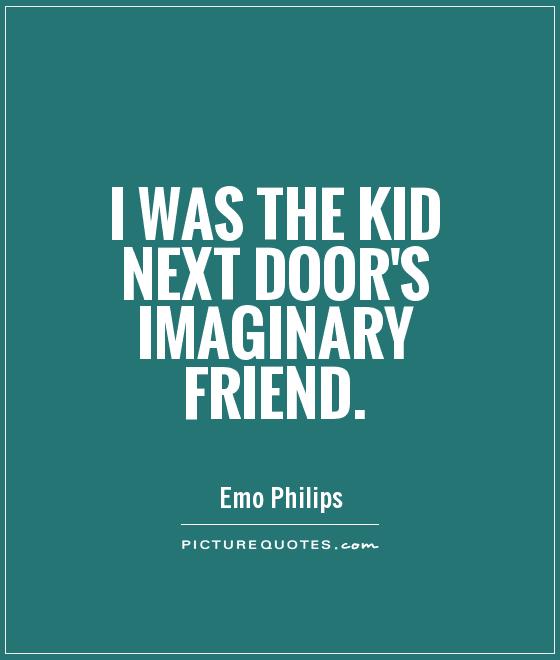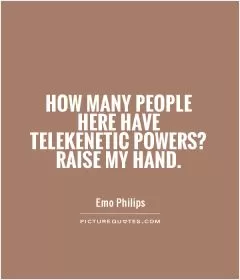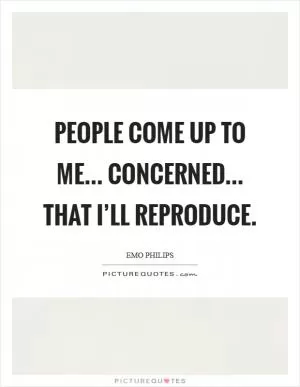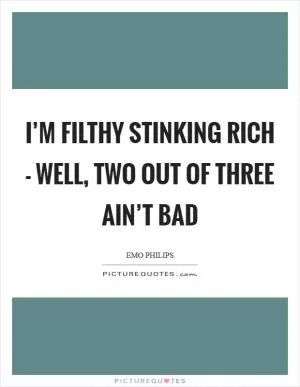I was the kid next door's imaginary friend

I was the kid next door's imaginary friend
Emo Philips, the renowned comedian known for his quirky and offbeat humor, once famously said, "I was the kid next door's imaginary friend." This seemingly simple statement holds a deeper meaning when examined through the lens of childhood imagination and the power of friendship.As children, our imaginations run wild, creating fantastical worlds and characters to play with and confide in. Imaginary friends are a common part of many children's lives, providing companionship and a sense of security in a world that can sometimes feel overwhelming. In Emo Philips' case, being the kid next door's imaginary friend speaks to the idea of being a constant presence in someone's life, even if only in their mind.
Being an imaginary friend can be both a blessing and a burden. On one hand, you have the opportunity to be a source of comfort and joy for a child, offering them a sense of companionship and support. On the other hand, you exist solely in their imagination, never truly able to interact with the world in a tangible way. It can be a lonely existence, knowing that you are not real in the traditional sense, but rather a figment of someone else's imagination.
Emo Philips' words also hint at the idea of being a forgotten or overlooked presence in someone's life. As the kid next door's imaginary friend, you may not always be at the forefront of their thoughts or memories. You are a fleeting presence, easily dismissed or forgotten as the child grows older and their imagination wanes.
Despite the ephemeral nature of being an imaginary friend, there is a certain magic in the role. You have the ability to shape and influence a child's world, providing them with a sense of wonder and creativity that can stay with them long after you have faded from their mind. In the end, being the kid next door's imaginary friend is a unique and special experience that speaks to the power of childhood imagination and the enduring bonds of friendship.












 Friendship Quotes
Friendship Quotes Love Quotes
Love Quotes Life Quotes
Life Quotes Funny Quotes
Funny Quotes Motivational Quotes
Motivational Quotes Inspirational Quotes
Inspirational Quotes